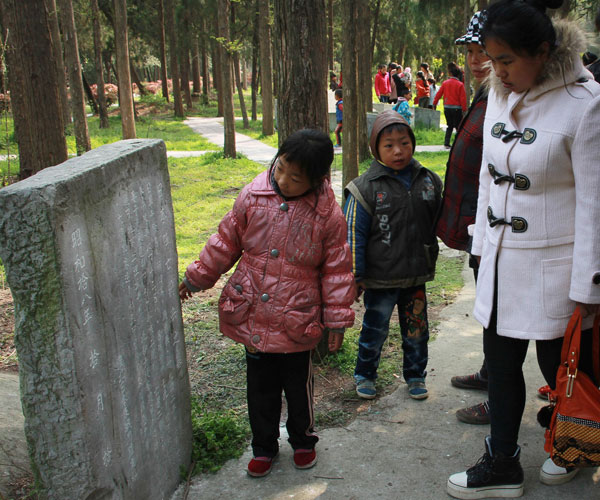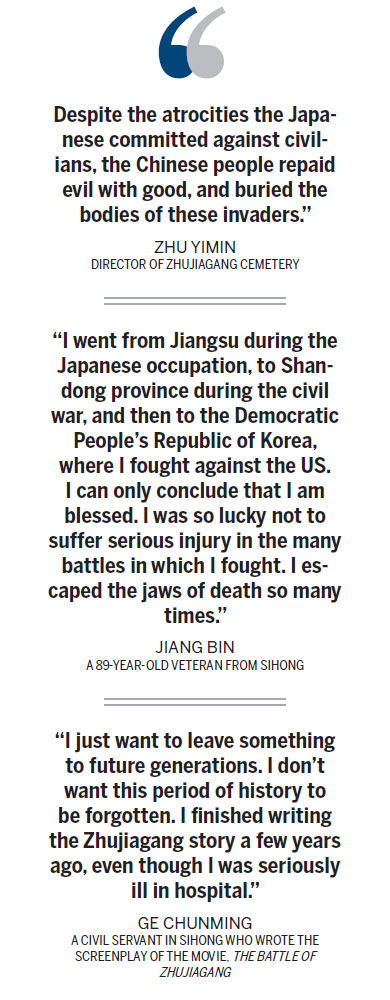A personal apology
Takashi Tanaka is one of the few Japanese to have visited the cemetery. During a trip to Zhejiang province in 2006, he was surprised to learn that a number of Japanese soldiers were buried in a cemetery in Jiangsu, said Li, the historian.
 |
|
Visitors read the epitaph on the gravestone of the Japanese soldiers buried in the cemetery. |
Tanaka decided he had to visit the cemetery. "He laid a wreath at the base of the memorial tower for the Chinese martyrs and made three deep bows to express a deep, personal apology to the Chinese people," said Li, who accompanied Tanaka during the visit.

"He then walked up to the gravestone of the Japanese soldiers and, after reading the epitaph in silence, he said he wanted to deliver a message to his compatriots and do his part to promote friendship between the peoples of China and Japan."
Jiang Bin, 89, a veteran from Sihong who fought in the War of Resistance against Japanese Aggression (1937-45), the Chinese Civil War (1945-49) and the Korean War (1950-53), was keen to tell his story.
"At the Battle of Zhujiagang, I was 16. I was a very short young man, so I wasn't called to the front line. Hearing the roar of the artillery, I hid in a nearby field where Chinese dates were growing," he said in a choked voice.
"During the Japanese mopping-up operations and rural-searches in northern Jiangsu, innocent civilians were taken away by those 'devils' and used as live targets in their shooting games."
"I went from Jiangsu during the Japanese occupation, to Shandong province during the civil war, and then to the Democratic People's Republic of Korea, where I fought against the US. I can only conclude that I am blessed. I was so lucky not to suffer serious injury in the many battles in which I fought. I escaped the jaws of death so many times," he said.
Jiang said he never shied away from the fight: "It was an era when fighting for the Chinese people was the most important thing in my mind. I didn't even think of my own life or death."
"No matter what the Japanese are doing now, history cannot be changed. The Chinese nation won't forget, nor will the people of the world," he said.
Ge Chunming, a civil servant at the Sihong local taxation bureau, wrote the screenplay of the movie The Battle of Zhujiagang.
"I just want to leave something to future generations. I don't want this period of history to be forgotten. I finished writing the Zhujiagang story a few years ago, even though I was seriously ill in a hospital," he said.
He criticized the rise of right-wing groups in Japan. "China is too lenient. Japan is a childish nation that will never grow up. They whitewash their wartime atrocities, and pretend to play the victims," he said. "What the right-wingers are doing is deceiving themselves, as well as others - just like plugging one's ears while stealing a bell."
